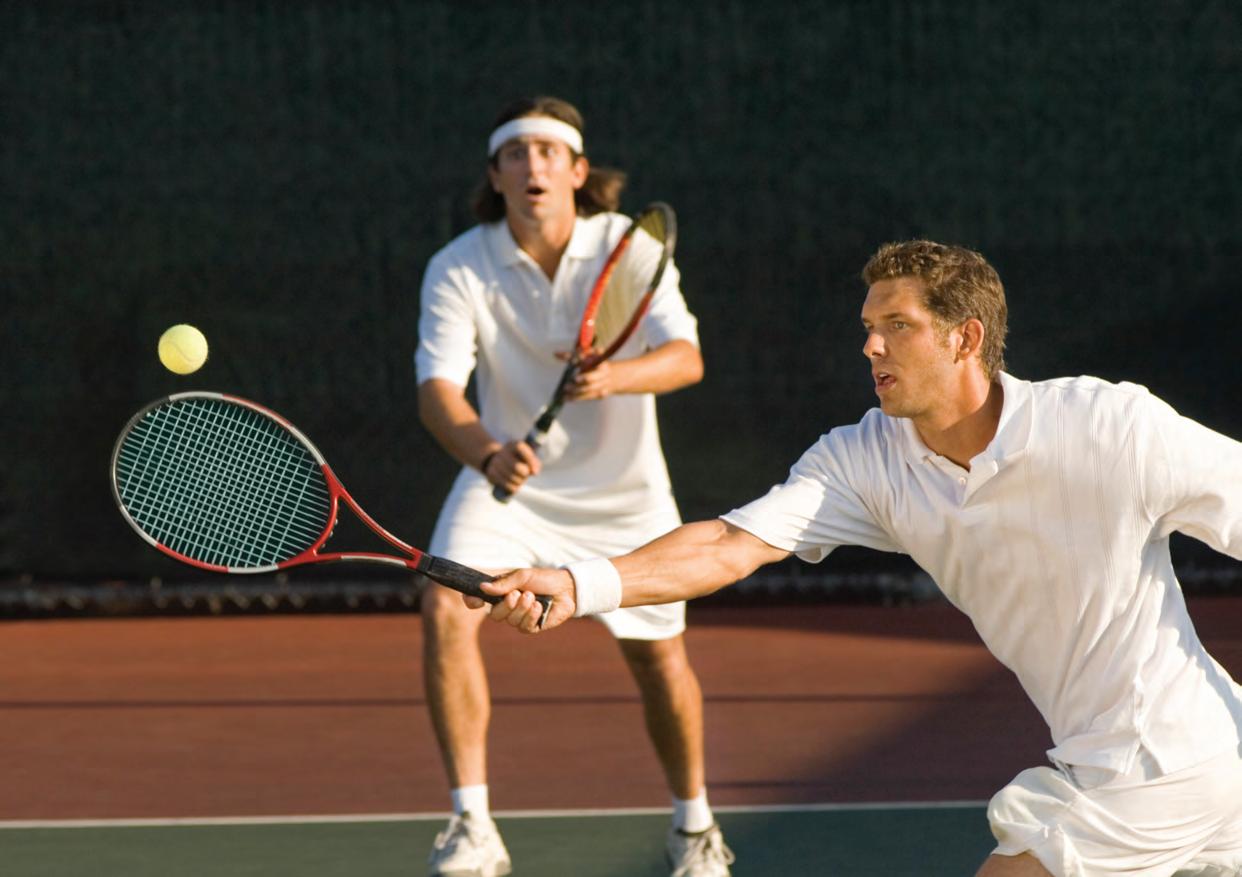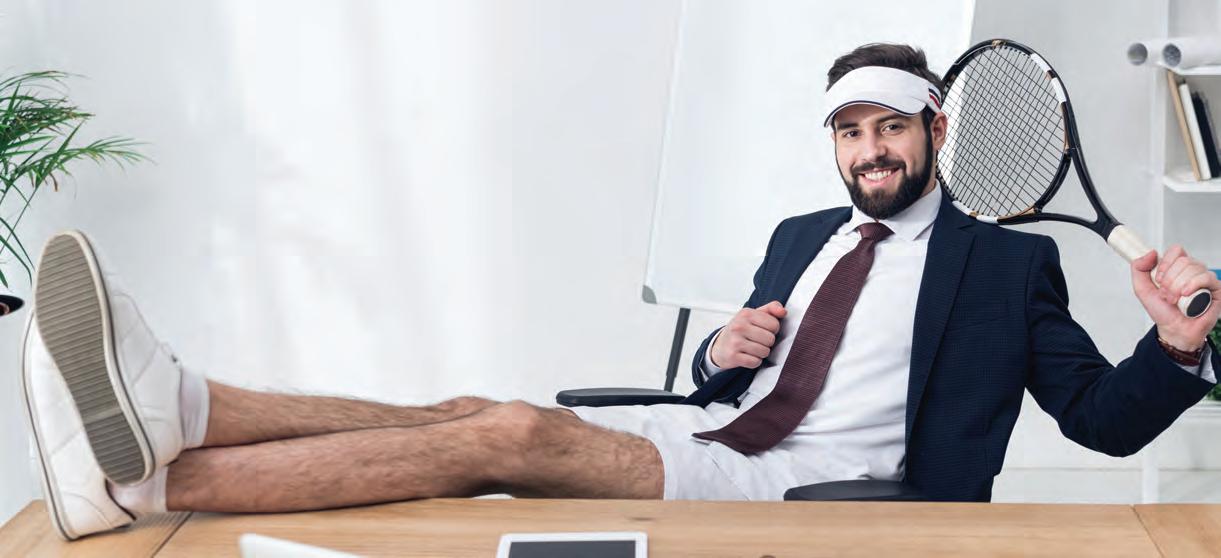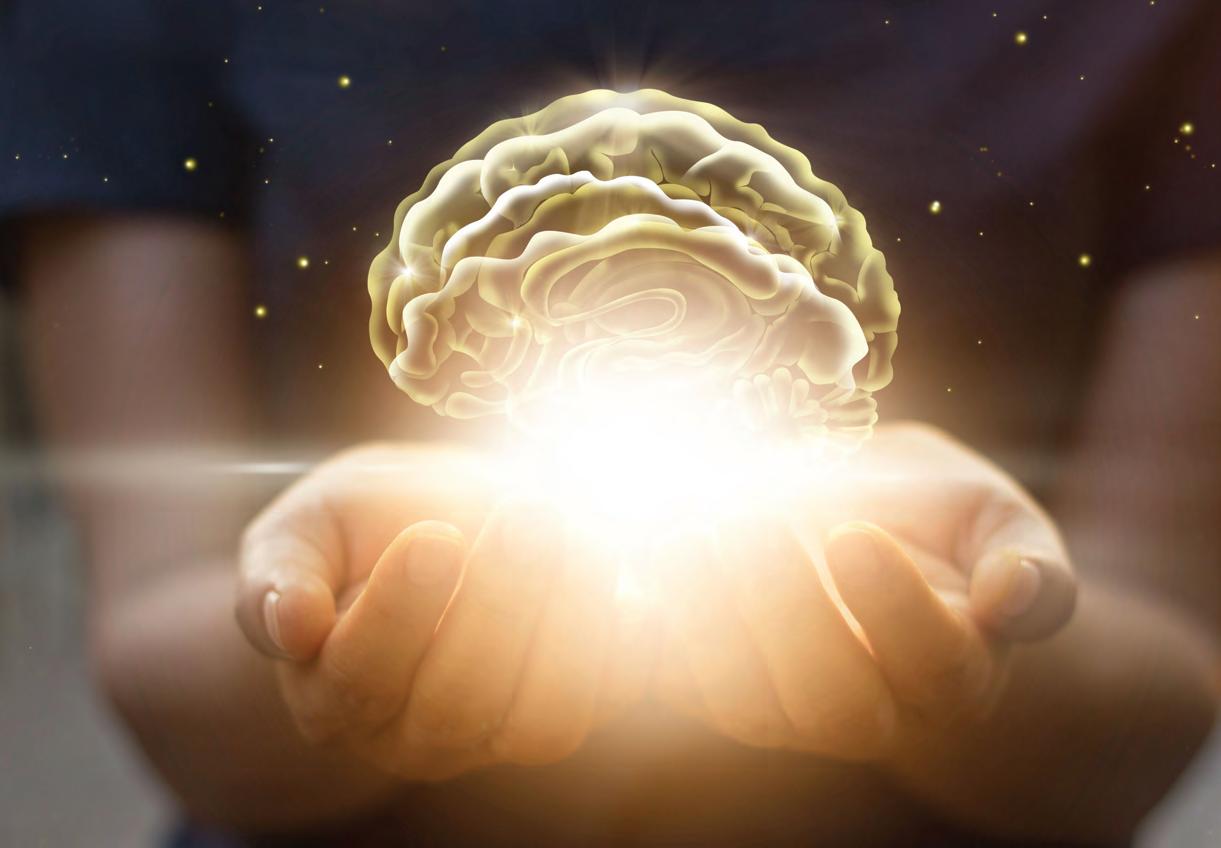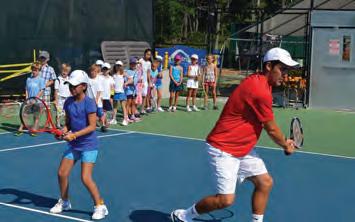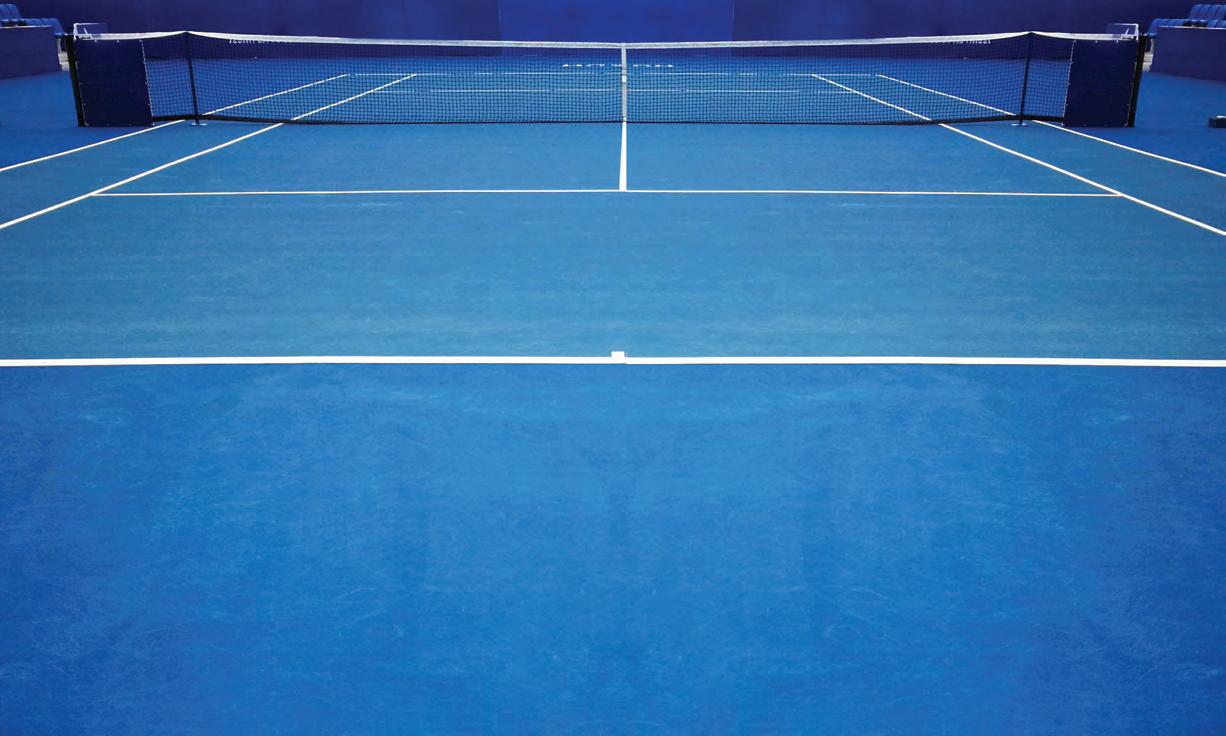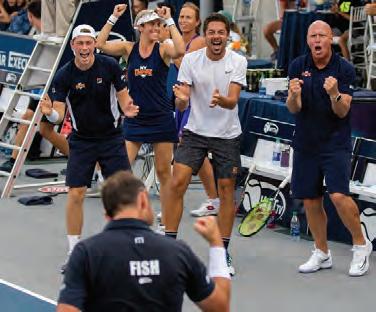A Look at the Mental Side of Tennis ometimes, as a tennis player, you exist on an island. Alone, solo, under the lights of your local club or drenched in the sun, there you are … between the lines, either gaining the accolades of glory hitting the winning shot or facing the weight of defeat. There are no teammates to pass to; no backup in case you throw a bad pitch or have a bad shift; no defense to pick you up after the offense turned the ball over...it’s just you who must deal with the adversity of this individual sport. Mental toughness is what gives top players a competitive leg up over the opposition. Training one’s mind to deal with nerves, anxiety and quickly move onward past mistakes can be the difference between being crowned “champion” and “finalist.” These individuals help players focus, find their groove and enter the zone to success. It’s the ability of the player to quickly get back on track once rattled that can make
S
28
the difference between bowing out in the first round of a tournament or hoisting the trophy at the end of the day. New York Tennis Magazine was fortunate enough to sit down and chat with multiple experts in the field of sports psychology to pick their brains and gain insight into their role as one of the most vital members of a tennis player’s support staff. Dr. Tom Ferraro is a sport psychologist with a Ph.D. from SUNY Stony Brook, with more than 25 years of experience working with professional teams, coaches and Olympic athletes across a broad range of sports. Dr. Ferraro is a board-certified psychoanalyst, which allows him to properly diagnose and treat the symptoms an athlete may bring to his him
New York Tennis Magazine • June 2020 • NYTennisMag.com
and help them understand any underlying reasons for self-defeat. He has been published internationally and has been featured in the New York Times, The Wall Street Journal, The London Times, and is a regular contributor to this publication. As a mental training coach, Rob Polishook works with athletes and teams in all sports and at all levels, from middle school to professional athletes, teaching cutting-edge mental training skills and techniques, and providing the tools necessary for athletes to compete in high level pressure situations. Polishook has earned a Master’s Degree in Psychological Studies with a concentration in Sport & Exercise Psychology at Seton Hall University, and has completed his Certification in Sport Psychology from Seton Hall. Polishook is


